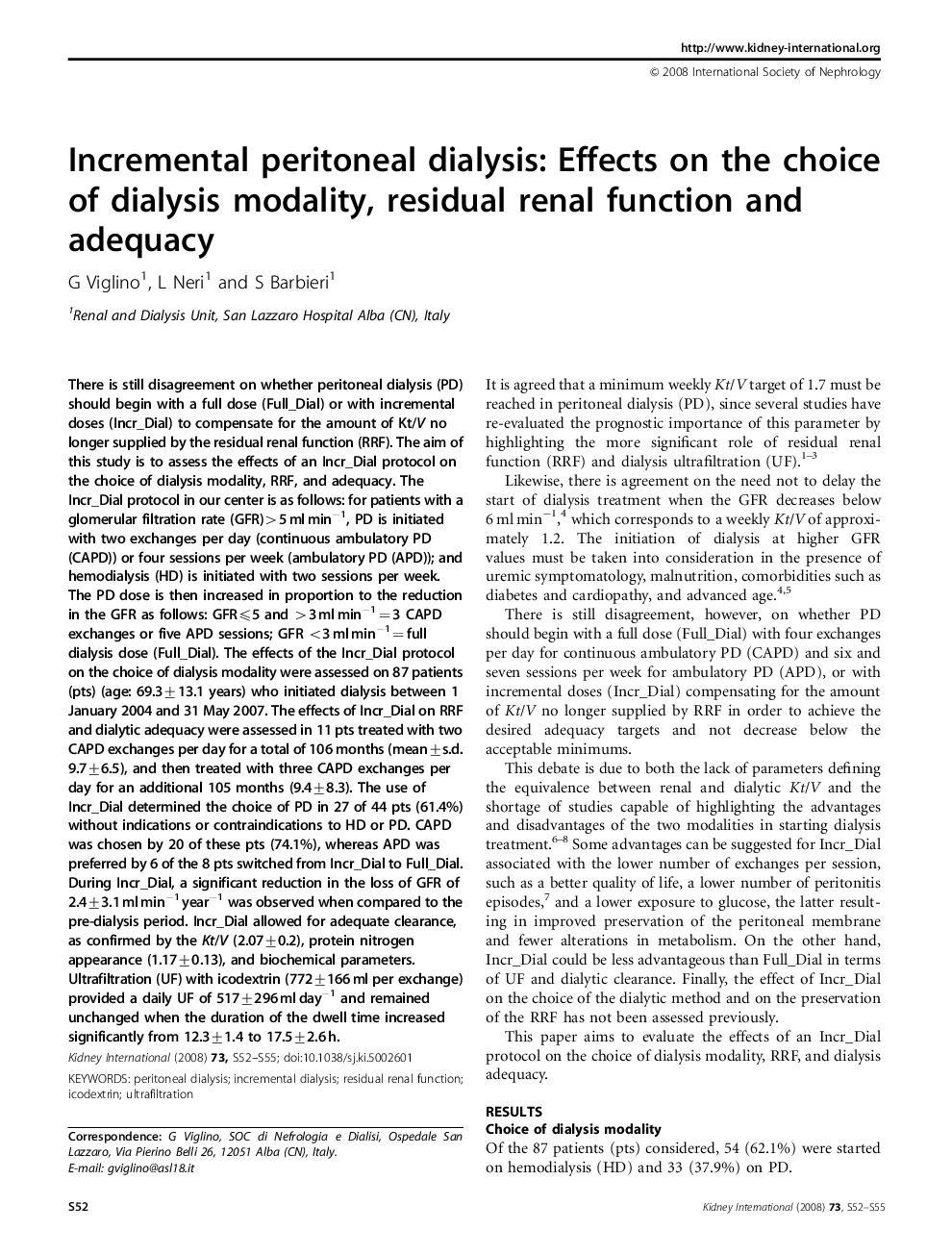| Article ID | Journal | Published Year | Pages | File Type |
|---|---|---|---|---|
| 8773505 | Kidney International | 2008 | 4 Pages |
Abstract
There is still disagreement on whether peritoneal dialysis (PD) should begin with a full dose (Full_Dial) or with incremental doses (Incr_Dial) to compensate for the amount of Kt/V no longer supplied by the residual renal function (RRF). The aim of this study is to assess the effects of an Incr_Dial protocol on the choice of dialysis modality, RRF, and adequacy. The Incr_Dial protocol in our center is as follows: for patients with a glomerular filtration rate (GFR)>5âmlâminâ1, PD is initiated with two exchanges per day (continuous ambulatory PD (CAPD)) or four sessions per week (ambulatory PD (APD)); and hemodialysis (HD) is initiated with two sessions per week. The PD dose is then increased in proportion to the reduction in the GFR as follows: GFRâ¤5 and >3âmlâminâ1=3 CAPD exchanges or five APD sessions; GFR <3âmlâminâ1=full dialysis dose (Full_Dial). The effects of the Incr_Dial protocol on the choice of dialysis modality were assessed on 87 patients (pts) (age: 69.3±13.1 years) who initiated dialysis between 1 January 2004 and 31 May 2007. The effects of Incr_Dial on RRF and dialytic adequacy were assessed in 11 pts treated with two CAPD exchanges per day for a total of 106 months (mean±s.d. 9.7±6.5), and then treated with three CAPD exchanges per day for an additional 105 months (9.4±8.3). The use of Incr_Dial determined the choice of PD in 27 of 44 pts (61.4%) without indications or contraindications to HD or PD. CAPD was chosen by 20 of these pts (74.1%), whereas APD was preferred by 6 of the 8 pts switched from Incr_Dial to Full_Dial. During Incr_Dial, a significant reduction in the loss of GFR of 2.4±3.1âmlâminâ1âyearâ1 was observed when compared to the pre-dialysis period. Incr_Dial allowed for adequate clearance, as confirmed by the Kt/V (2.07±0.2), protein nitrogen appearance (1.17±0.13), and biochemical parameters. Ultrafiltration (UF) with icodextrin (772±166âml per exchange) provided a daily UF of 517±296âmlâdayâ1 and remained unchanged when the duration of the dwell time increased significantly from 12.3±1.4 to 17.5±2.6âh.
Related Topics
Health Sciences
Medicine and Dentistry
Nephrology
Authors
G. Viglino, L. Neri, S. Barbieri,
